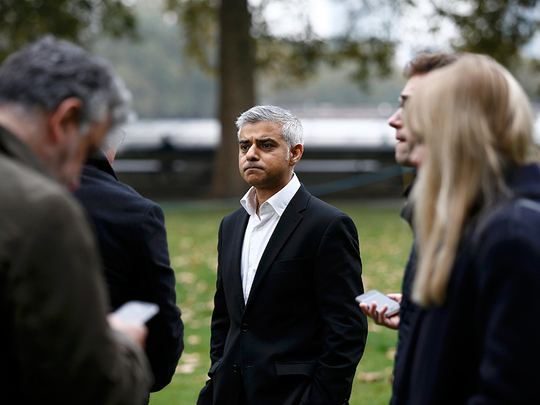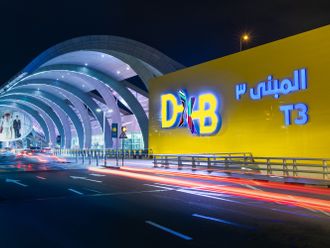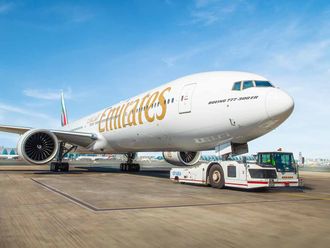
British Prime Minister Theresa May’s government gave the green light to an expansion of London’s Heathrow Airport, bringing to an end one of the longest debates in UK politics but leaving open questions about how it would be funded.
The announcement on Tuesday endorsed the conclusions last year of a state-sponsored commission that said Heathrow, and not its rival Gatwick, is the best candidate for growth amid a crunch in UK flight capacity. The 16 billion-pound ($20 billion) construction of a third landing strip at Heathrow — the first full-length runway in southeast England since World War II — will allow the 70-year-old airport to handle 135 million passengers a year.
A public consultation will now be held before final government proposals are put to Parliament in the winter of 2018. Despite high-profile protests from members of her Conservative Party and the opposition, May probably has enough support to get it through Parliament. Still to hash out are the details of how it will be financed: The private sector will pay, but the government has urged the airport not to increase landing charges to fund the expansion.
Keen to show the UK is open for business after the Brexit vote, May pushed through a decision that has divided opinion for decades, with unanimity in the cabinet committee that approved the plan. Ministers with “strongly held views” against expanding Heathrow will be free to continue to express their opposition, in a break from normal practice, though not in Parliament. Foreign Secretary Boris Johnson, who has been the most prominent of those critics, told reporters after the cabinet met that he’d carry on opposing expansion. London Mayor Sadiq Khan, from the opposition Labour Party, also objects.
European competitors
While Heathrow remains Europe’s busiest airport, indecision over its expansion has seen that lead diminish in recent years as competitors including Frankfurt, Amsterdam and Paris Charles de Gaulle add flights on their multiple runways. Fast-growing hubs further east, including Dubai and Istanbul, are also grabbing a bigger share of the most lucrative long-haul transfer traffic.
The new runway will benefit the UK economy by as much as 61 billion pounds and will create as many as 77,000 extra jobs over the next 14 years, the government said. The private sector will pay for the expansion, and the government said whatever plan the airport and airlines come up with should allow landing charges to be kept “close to current levels.” Shares in Ferrovial SA, which owns 25 per cent of Heathrow, rose as much as 1.4 per cent on news of the approval before falling 0.7 per cent.
May’s predecessor, David Cameron, put off a decision on Heathrow in December when he said more studies were needed on the environmental impact of a hub surrounded by the urban sprawl of west London and with flight paths over the centre of the city. His earlier move to appoint an Airports Commission led by former Financial Services Authority Chairman Howard Davies to adjudicate on expansion had in turn avoided making the runway decision a potential vote loser in the 2015 general election.
Single super-hub
While Davies shortlisted three proposals for adding capacity — including a second runway at Gatwick and an extension of one of the two existing runways at Heathrow — he concluded that the third-runway plan was superior. Carriers including British Airways also backed the model, arguing that expanding Gatwick would split flights between two similarly sized bases, making fewer routes viable than from a single super-hub with double the traffic.
Cameron had been hamstrung by a “no ifs, no buts” commitment not to expand Heathrow issued in the run-up to the 2010 election, as well as opposition to the plan among prominent figures in his own party, including lawmakers Zac Goldsmith, the conservative candidate in London’s last mayoral election, and Justine Greening, the education secretary, whose constituencies are under the flight-path.
“Following the government’s catastrophic Heathrow announcement, I will be meeting my constituents later today before making a statement,” Goldsmith said on Twitter. The Huffington Post reported that he had told local Conservatives he would honour his pledge to quit and trigger a special election.
Boris Island
Boris Johnson was an outspoken critic of expanding Heathrow during his time as London mayor between 2008 and this year, proposing that Britain should instead build a completely new hub airport in the Thames estuary east of the capital. The model, dubbed “Boris Island,” was rejected outright by Davies.
Businesses welcomed the decision, with the Confederation of British Industry saying it was “fantastic news.”
“Pressing ahead with key infrastructure projects like this will provide not only a welcome economic stimulus, but will show the world that we are well and truly open for business as we negotiate our exit from the EU,” Paul Drechsler, the president of the Confederation of British Industry, said in a statement.











